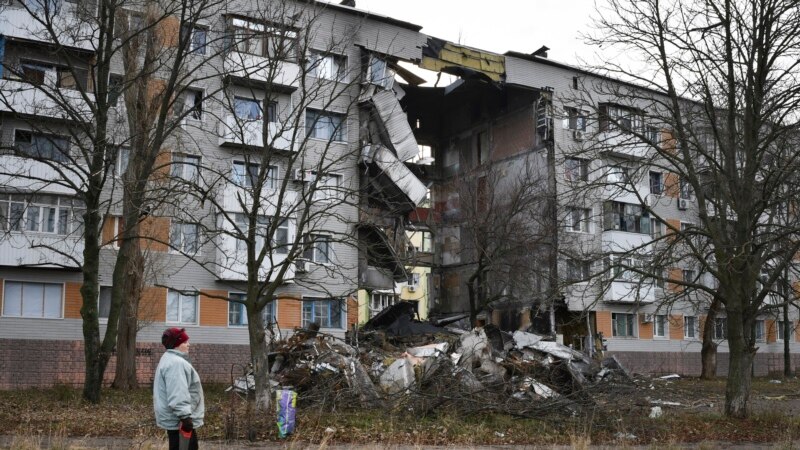
Ukraine has launched multiple missile attacks on the Russian-occupied town of Melitopol and targeted the Russian-annexed Crimean Peninsula, according to reports from the war zone, while Russian drones attacked Ukraine’s southern port city of Odesa.
Ukrainian President Volodymyr Zelenskyy said about 1.5 million people were left without electricity in the Odesa region, with local officials urging residents whose homes rely only on electricity to leave.
“We are talking not about days,” for the repairs to be made and the power restored, they said in a Facebook post, “but even weeks and possibly even two to three months.”
White House National Security Council spokesman John Kirby told ABC’s “This Week” show that Russian President Vladimir Putin “is trying to bring Ukraine to its knees” with attacks on the country’s electrical grid and water supplies as winter sets in.
Fifteen drones were launched at Odesa and the surrounding region, the Ukrainian armed forces said on Facebook, while 10 were shot down. The ones that got through struck two power facilities, Ukraine’s prosecutor general’s office said. The prosecutor’s office said these were Iranian-made Shahed-136 drones.
“Due to the scale of the damage, all users in Odesa except critical infrastructure have been disconnected from electricity,” Odesa Mayor Gennadiy Trukhanov wrote on Facebook.
Between Friday and Saturday, the Ukrainian military General Staff reported about 20 airstrikes and more than 60 rocket attacks across Ukraine.
General Staff spokesperson Oleksandr Shtupun said more than 20 populated places came under fire in the Bakhmut district, scene of the most active fighting.
If Russian forces capture Bakhmut, they could cut Ukraine’s supply lines and open a route to Kramatorsk and Sloviansk, key Ukrainian strongholds in Donetsk, according to The Associated Press. Russia has battered Bakhmut with rockets for more than half of the year and shifted troops there for a ground assault after Ukraine drove them from Luhansk in July.
Since October, Russia has been targeting Ukraine’s power grid. Kyiv acknowledged Friday that every thermal and hydroelectric power plant in the country had been damaged.
Zelenskyy says the attacks are war crimes targeting civilian life, while Moscow says they are militarily legitimate.
The chief of the National Police of Ukraine, Ihor Klymenko, said Saturday, that 47,000 Russian war crimes have been recorded in Ukraine since the start of the February 24 invasion. The number includes the torture, rape, and murder of civilians.
Putin is determined to conquer parts of Ukraine and shows no restraint in his brutality, German Chancellor Olaf Scholz said Saturday at an event in Potsdam near Berlin. But, he added, it is still important to keep a channel of communication open in case an opportunity to end the war arises.
“We are of completely different opinions,” Scholz said. “Nonetheless I will keep speaking with him because I want to experience the moment where it is possible to get out of this situation. And that’s not possible without speaking with one another.”
“We have seen the brutality the Russian president is capable of. In Chechnya where he basically eradicated the whole country. Or in Syria. There is no restraint there, it’s as simple as that,” Scholz said.
Scholz also defended his government’s aim to raise defense spending to NATO’s goal of 2% of gross domestic output for each of the 30 countries in the military alliance. He said NATO countries needed to be strong enough that nobody would dare to attack them.
Russia-Iran military partnership
Iran has become one of Russia’s top military backers since the invasion of Ukraine, according to the British Defense Ministry intelligence update posted on Twitter Saturday.
Iran’s support of Russia is likely to grow, the ministry said, because “Russia is attempting to obtain more weapons, including hundreds of ballistic missiles. In return, Russia is highly likely offering Iran an unprecedented level of military and technical support that is transforming their relationship.”
Kirby said Friday that the administration was deeply concerned about the “deepening and burgeoning defense partnership” between Iran and Russia, and that the United States would be using its tools to disrupt that relationship.
VOA White House Bureau Chief Patsy Widakuswara contributed to this report. Some information for this story came from The Associated Press, Reuters and Agence France-Presse.
